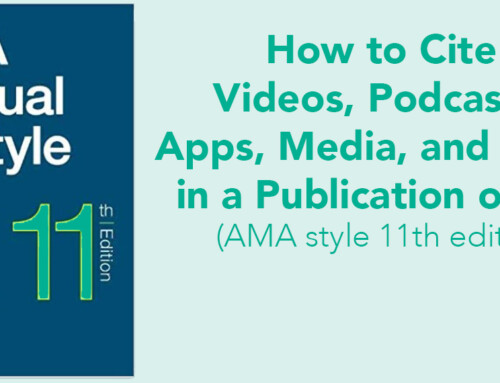The American Medical Association (AMA) just released a policy on Social Media and Medical Professionalism. It focuses more on the negative aspects of social media, and much can be averted by just using common sense:
Negative side of social media
Physicians should weigh a number of considerations when maintaining a presence online:
- Physicians should be cognizant of standards of patient privacy and confidentiality that must be maintained in all environments, including online, and must refrain from posting identifiable patient information online.
- When using the Internet for social networking, physicians should use privacy settings to safeguard personal information and content to the extent possible, but should realize that privacy settings are not absolute and that once on the Internet, content is likely there permanently. Thus, physicians should routinely monitor their own Internet presence to ensure that the personal and professional information on their own sites and, to the extent possible, content posted about them by others, is accurate and appropriate.
- If they interact with patients on the Internet, physicians must maintain appropriate boundaries of the patient-physician relationship in accordance with professional ethical guidelines just, as they would in any other context.
- To maintain appropriate professional boundaries physicians should consider separating personal and professional content online.
- When physicians see content posted by colleagues that appears unprofessional they have a responsibility to bring that content to the attention of the individual, so that he or she can remove it and/or take other appropriate actions. If the behavior significantly violates professional norms and the individual does not take appropriate action to resolve the situation, the physician should report the matter to appropriate authorities.
- Physicians must recognize that actions online and content posted may negatively affect their reputations among patients and colleagues, may have consequences for their medical careers (particularly for physicians-in-training and medical students), and can undermine public trust in the medical profession.
Positive side of social media
On the flip side, Greysen et al wrote a nice commentary piece in the Journal of General Internal Medicine about the positive applications of social media in Medicine.
- Provide insightful and respectful reflection narratives about clinical experiences that maintain patient anonymity.
- Promote quality improvement and patient safety guidelines
- Serve as a trustworthy source of medical information to balance less-reliable online resources
To quote the authors: “Much like a mirror, social media can reflect the best and worst aspects of the content placed before it for all to see.”
Social media is here to stay. Let’s figure out how to work with it rather than avoid it.
Reference
Greysen SR, Kind T, & Chretien KC (2010). Online professionalism and the mirror of social media. J Gen Int Med, 25 (11), 1227-9–





